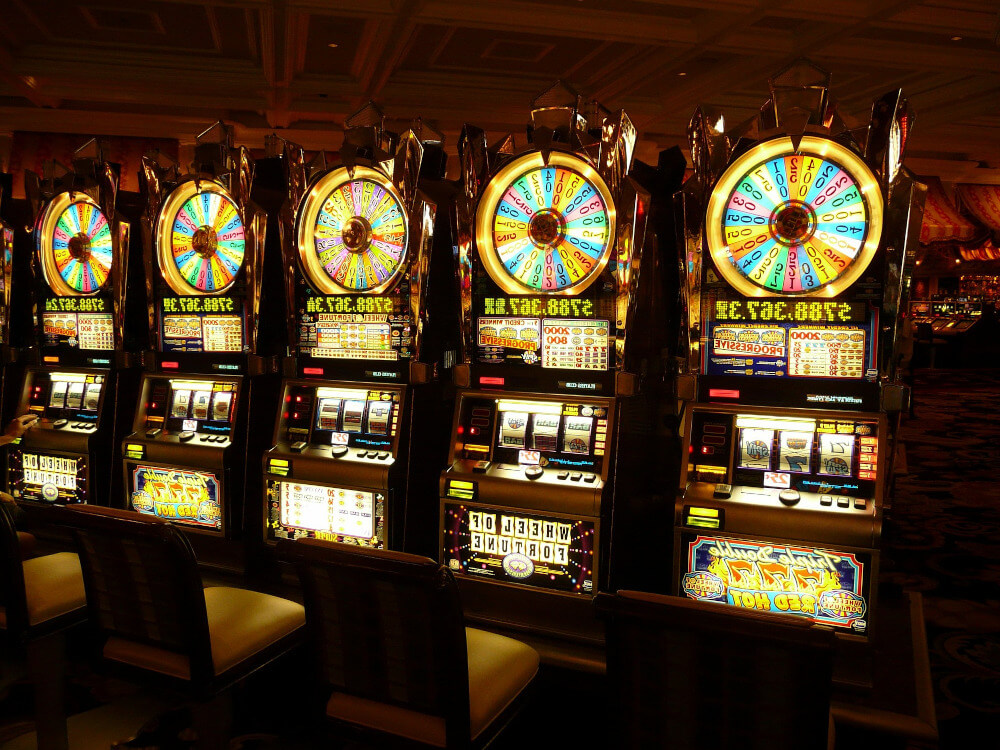Slot machines are the most popular casino games, yet many people don’t understand how they function. In fact, some people completely misunderstand how they work, while others are eager to take advantage of the general public’s ignorance. See our page on slot machine myths for our thoughts on them.
This page’s goal is to describe how a slot machine works. Depending on your disposition, you may become less (or more) attracted to this type of game once you comprehend its underlying workings. However, slots are extremely profitable for the casino for various reasons, not the least of which being how they work.

Do Online Slots Work? If online slots were rigged, they would have all been shut down by now. It's one of the main reasons why VSO only recommends reliable online casinos. Top gaming countries like the UK, Malta, and Gibraltar maintain fair and secure gaming requirements, giving everyone an equal opportunity of winning.
The Return to Player (RTP) determines the slot's payout. If the slot has a 96% RTP, it will pay out $96 for every $100 wagered. This is regulated and independently tested to ensure your safety.
Follow our advice and you'll avoid encountering rigged slots.
- Slot machines generate random numbers. Early slot machines (think coin slots) used a random number generator, just like a roulette wheel, a deck of cards, or a pair of dice. Modern slot machines generate random numbers that decide the game's outcome.
- Remember that the outcomes are actually random. The game has no cycle, and no slot machine jackpots are due. Slots aren't hot or cold. They only seem to in retrospect. It's impossible to forecast, just as it's impossible to foresee the next card in a deck of cards.
- The casino has an advantage over players. This is true of all casino games. The casino's edge is based on arithmetic and numbers. Every casino bet pays less than the actual odds of winning.
- Like hitting a specific number in roulette at 37 to 1. Beating the odds of 35 to 1 is a tough call. Isn't it obvious how the casino generates money in that situation?
Slot machines also operate
Slots have three or five reels. The front picture of the machine is the reel. It features many symbols and if you line them up correctly, you earn money. The less often a combination of symbols is to line up, the larger the reward.
They used to be enormous metal hoops, but now that slot machines are computerized, they're often just images on a television screen. Even with slot machines with physical reels, the outcome is determined by the computer's random number generator.
The “stops” are where the reels stop. In between symbols, reels can halt. Historically, each symbol had an equal chance of appearing on a slot machine, but computers have changed the chances. A cherry on a reel every 50 spins, an orange every 5 spins, or any other combination you can think of.
Slot machines used to have 10 stops per reel, but currently, they have 30 to 50. The more reel stops you have, the easier it is to provide big payouts. The chances of winning a given combination are 1/10 X 1/10 X 1/10, or 1/1000. If your payout is beyond 1000 units, you are losing money.
Modern computers can weight such odds.
The weighting determines the likelihood of a stop being chosen. Imagine a slot machine with ten symbols, one of which is unique and only appears once every 100 spins. The odds of receiving 3 of that symbol are 1/1,000,000. On that combination, you could theoretically pay out $1 million and still make even. Both casinos and players enjoy such action.
Another symbol may be programmed to appear half the time, reducing your chances of hitting it to 12 X 12 X 12, or 1/6. If it pays out at 2 to 1, the casino still gains money, but the player feels like she's winning frequently.
That is the par sheet. There is a par sheet on every modern slot machine, and it includes the blanks. The odds and house edge for a slot machine game are known to the casino. Because gambling organizations hide these par sheets, players never know the odds, house edge, or payback percentage.
Another term to learn is “payback percentage”. Calculate how much money the machine will “pay back” over an indefinite number of spins. For example, if a machine is intended to pay out 97 percent, the typical player should win $3 out of every $100 bet. Casinos differentiate between theoretical and actual payback percentages, but one thing is certain. Casinos make a fortune from slots.
Retro Gaming and Slots Games
Retro gaming is now almost everywhere, including online video slots. They're made for gamblers who miss brick-and-mortar slot machines. It's strange to think that these video game classics would influence online slots, but they do. Classic items are in high demand in today's fast-changing society. Black-and-white films, old songs, and classic cars give us a sense of quality or nostalgia. The same applies to classic casino slots. Every day, new online slots titles appear in all genres, thanks to the latest technology.
